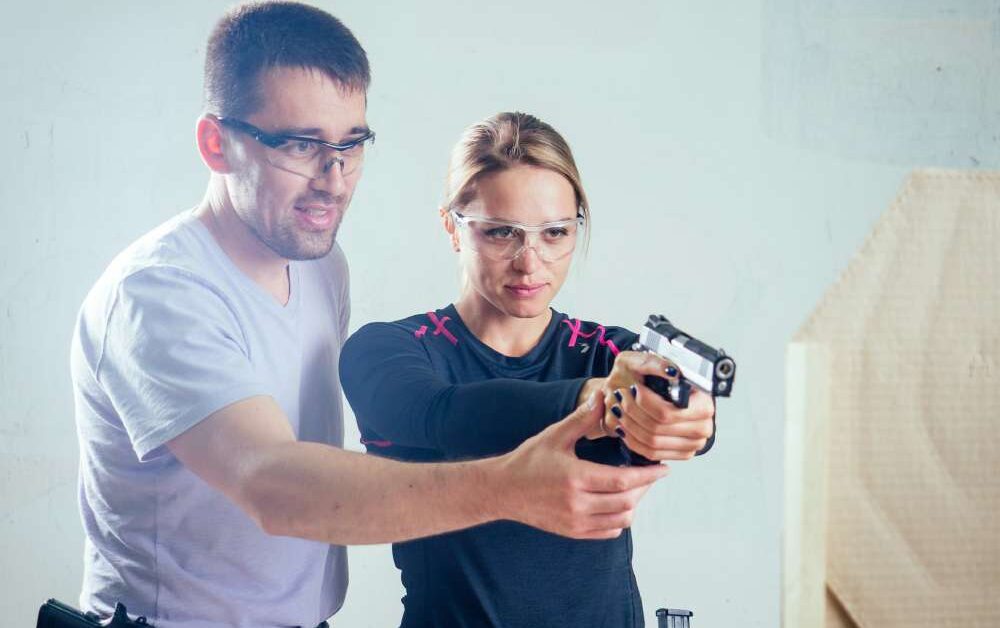Firearm safety extends beyond an owner’s personal responsibility—it is also a societal one. With firearms present in many homes across the nation, the importance of comprehensive safety practices cannot be overstated.
The magnitude of this responsibility can be daunting, but it starts with education. This is where resources such as CT pistol permit classes become invaluable. These classes are designed to provide thorough guidance on the essential skills and legal knowledge required to handle and own guns safely.
The cornerstone of responsible gun ownership lies in consistently applying the principles of firearm safety. This isn’t merely about protecting oneself; it also guards families, neighbors, and friends from potential harm. Whether you’re a novice considering your first gun purchase or a veteran looking to refresh your skills, understanding and practicing firearm safety is crucial.
Contents
The Importance of Training and Certification
Training and certification form the bedrock of conscientious gun ownership. They are more than just formalities—they provide the critical skills and knowledge to safely and confidently handle firearms. Certification courses offer a structured environment where participants learn about laws, safe handling practices, and adequate storage methods. These courses often include practical exercises that help ingrain safe habits, ensuring these actions become second nature.
A well-structured training program will also help familiarize participants with different types of firearms and their respective functionalities. This knowledge is crucial because each type of firearm has unique features and requires specific handling methods. For instance, armed security guards in Connecticut must obtain a Blue Card, a specialized permit that ensures they meet rigorous training and certification standards.
Additionally, individuals seeking to carry a handgun must secure a CT pistol permits, which involves background checks and safety training. Such requirements highlight the importance of proper education in firearm safety. Hence, investing time in training and acquiring proper certification can dramatically reduce the risk of accidents and misuse.
Essential Tips for the Safe Handling of Firearms
Safe firearm handling is predicated on a few fundamental rules that every gun owner should internalize. First, every firearm should always be treated as if it is loaded. This principle cultivates a habit of caution and prevents complacency. Second, always ensure that the muzzle is pointed in a safe direction. This means being mindful of your surroundings and ensuring the weapon is never directed toward a person or unintended target.
Another essential guideline is keeping your finger away from the trigger until you are ready to fire. This minor step can avert unintentional discharge. Also, awareness of your target and what lies beyond it is essential. Bullets can travel significant distances, and understanding what’s beyond your intended target can prevent unintended injuries.
These practices are not merely guidelines—they are life-saving measures that every gun owner should follow rigorously. The National Shooting Sports Foundation provides valuable resources at NSSF Firearm Safety Rules for a comprehensive breakdown of firearm safety rules.
Legal Considerations for Gun Owners
The legal framework regulating firearm ownership and use is intricate and differs notably from one area to another. Comprehending these regulations is not a choice—it’s a crucial part of being a responsible owner. Laws can encompass various subjects, including but not limited to purchasing regulations, limitations due to past criminal offenses, safe storage requirements, and transportation guidelines.
Awareness of firearm laws in your region is essential, as a lack of knowledge may result in significant fines, legal consequences, or potentially losing your right to own firearms. As these laws can change, regular consultation with legal resources or local enforcement agencies is advisable to ensure compliance and safeguard against unfortunate legal repercussions.
Choosing the Right Firearm for Your Needs
Selecting a firearm that suits your needs involves carefully assessing your situation. Factors such as the intended purpose (self-defense, sport shooting, hunting), the user’s physique, and firearm functionality must be considered. It’s important that the firearm feels comfortable in your hands, which aids in both safety and shooting accuracy.
The purchasing process presents a chance to engage with experts who can provide guidance and help you grasp the benefits and drawbacks of different firearms. Participating in this conversation guarantees you will make a well-informed choice customized to your needs and abilities.
Firearm Storage and Safety Measures
Once you have acquired a firearm, securing it appropriately is critical. Safe storage solutions comply with legal standards and enhance overall safety within your home. Gun safes, lock boxes, and trigger locks are different tools that can assist in preventing unauthorized access, especially in homes with children. This point cannot be emphasized enough, as a properly secured firearm dramatically reduces the likelihood of accidents and misuse.
Tips for Maintaining Your Firearm
Maintenance is a key aspect of firearm safety, and regular cleaning and upkeep ensure that weapons remain in good working condition. According to American Police Beat, a typical maintenance routine includes cleaning the barrel to remove residues, lubricating moving parts to prevent jamming, and inspecting the firearm for wear and tear. The process not only extends the life of the gun but also ensures its reliability.
Resources for Continued Learning and Support
The path to responsible lifelong gun ownership is paved with education and regular engagement with the shooting community. Continuous learning is imperative to keep up-to-date with new safety protocols, technologies, and legal requirements. Participate in local shooting clubs, workshops, and online forums to further your knowledge and challenge yourself to be a better-informed owner.
By committing to these practices and continuously seeking knowledge, gun owners can ensure their security and that of the broader community. Remember, being a responsible gun owner is about much more than knowing how to aim and shoot; it requires dedication to safety, legality, and ongoing education.

